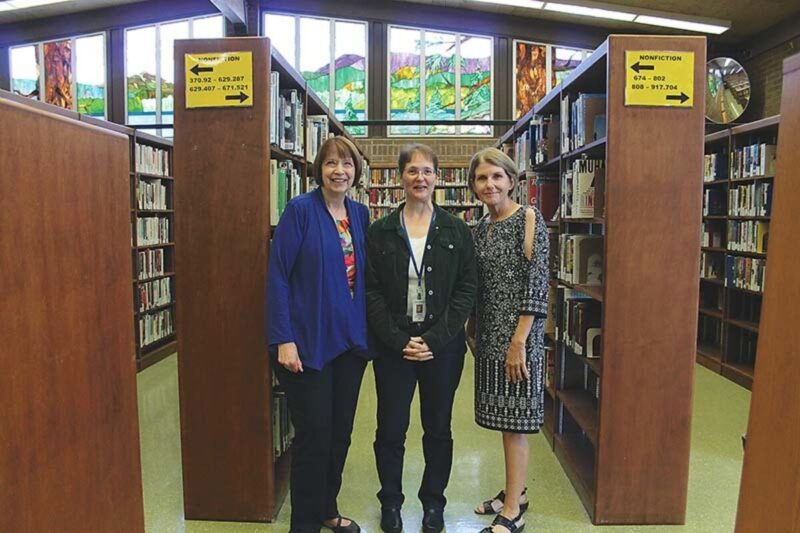Sarah Brown
A new program geared toward native English speakers who need help learning to read and write will be available at the Sweet Home Library by November.
Linn-Benton Community College, Linn County Library Consortium and GED Network are partnering together to offer an adult literacy program funded by a grant through the State Library of Oregon.
“I love this idea,” said Rose Peda, director at the Sweet Home Library. “We’ve identified here at the library several individuals who (would benefit from this program).”
With state money and matching funds totaling $101,000, coordinator Amanda Makepeace is creating learning kits that will be available at the five library consortium members in Sweet Home, Lebanon, Albany, Harrisburg and Scio.
“The idea is to develop these kits that the library can check in and out, or a community service agency can check in or out,” Makepeace said.
The program will rely on trained volunteers to commit 100 hours of tutoring, and agencies to refer adults with low literacy.
Makepeace expects service organizations – such as Community Services Consortium, Salvation Army, Worksource Oregon, DHS and Helping Hands – to help connect adults to the program, but many will also be referred by LBCC and the libraries.
Five percent of incoming students who are native English speakers score below the fifth grade reading level and wouldn’t be able to get through the Adult Basic Skills courses at the college, according to a statement in the grant application. Although a variety of organizations provide tutoring, none in Linn County meet the specific needs of those adults with very low literacy.
If those adults don’t even have the literacy skills to get a GED, they will hit a wall and give up, Makepeace said, and that makes it harder to participate in the workforce and climb out of poverty.
“A lot of these people who need these skills, they need these skills for their jobs, filling out forms, taking tests online, certifications to keep or make advancements in their job, placement tests, drivers licenses, and so forth,” said Kathi Collins, volunteer for the GED Network.
She’d like to see interdisciplinary studies, and life and job placement skills woven into the program, as well.
Being illiterate is like waking up to find everything written in Russian, Makepeace said. You’re trying to manage your life, or perhaps understand what it is the doctor just handed you. Some are ashamed or embarrassed about their predicament.
“It pulls at your heart strings when they’re trying to get a job and better themselves, and just have no way of doing it on their own,” Peda said.
When the program rolls out in November, tutors will be matched up with tutees, and they will schedule their own times to meet at a library and work on their lessons.
The leveled readers are written in simple, clear English, but the subject matter will be interesting to adults, Makepeace said. Her biggest concern, really, is finding a pool of civic-minded people who want to volunteer their time for this.
Peda has seen what it’s like for people who can’t read, and it’s changed her worldview.
“(It makes) you really want to hug the people that taught you. You want to thank them because without the basics that you had growing up, you too could be in this situation,” she said.
For more information about the new Adult Literacy Program, or to volunteer as a tutor, email [email protected].





